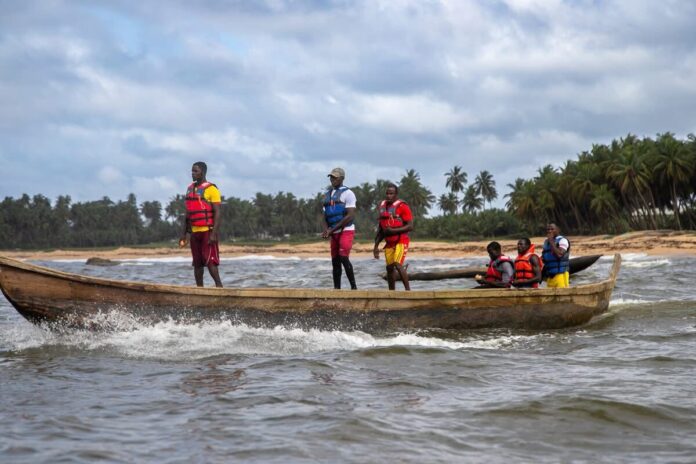Along Liberia’s coastline, the sound of waves hitting wooden canoes is more than just background noise—it’s the heartbeat of local livelihoods, traditions, and community life. For generations, fishing has supported families, boosted economies, and shaped the culture of these coastal areas. But a new report warns that without urgent action, this vital way of life is at risk.
The Environmental Justice Foundation (EJF), through the European Union-funded Communities for Fisheries project, has released a detailed study showing practical ways to create sustainable livelihoods for Liberia’s fishing communities. The report highlights the fishing industry’s important role—making up 10% of the national GDP and providing jobs for over 51,000 people—while also pointing to growing challenges that threaten its future.
The report explains that overfishing and environmental pressures are putting fish stocks at risk, making it harder for families to rely on fishing alone. However, the study also found that many fishers are willing to adapt. While their connection to fishing remains strong, 83% said they would consider other jobs if those offered similar or better financial stability.
Some of the best options identified include selling fishing gear, offering transportation services, and small-scale retail. Women, who make up 60% of the fisheries workforce, showed interest in activities like petty trading, tailoring, and farming.
Still, changing livelihoods isn’t easy. Many coastal residents face big challenges like limited access to money, lack of job training, and poor infrastructure—roads, electricity, and formal banking services are often missing in these rural areas.
One hopeful sign comes from community groups like Village Savings and Loans Associations (VSLAs), many run by women. These local financial groups provide small loans and savings options, helping families handle unexpected problems.
The report shares the story of Mary, a fishmonger whose family’s canoe was destroyed in an accident. Thanks to her VSLA savings, she bought a new canoe, keeping her family of twelve afloat—both in the water and financially. Mary’s story shows how local solutions can build resilience.
Beyond money, the EJF report stresses the need to include alternative livelihoods in wider fisheries management plans. It points to the success of Collaborative Management Associations (CMAs), which give communities a formal voice in managing their fisheries. In Grand Cape Mount County, a CMA helped end long-standing conflicts between communities and doubled the number of women in leadership roles—showing how economic empowerment can lead to greater influence and equality.
The EJF is now urging quick action to expand these successes. Their recommendations include improving infrastructure, offering more vocational training, and increasing access to credit through groups like VSLAs. These steps, the report says, could ease the pressure on Liberia’s overfished waters while protecting incomes and food security.
“This report shows the urgent need for focused support to strengthen Liberia’s coastal communities,” said Cephas Asare, EJF’s West Africa Regional Manager. “Our Communities for Fisheries project offers practical ways to reduce dependence on marine resources while giving fishers and fish workers a path to financial stability. These efforts are key to protecting Liberia’s fish stocks and the communities that rely on them.”
For Liberia’s fishing communities, the stakes are high. The sea has always provided for them, and with careful planning, better infrastructure, and stronger community-led efforts, it can also support a more diverse and sustainable future.



